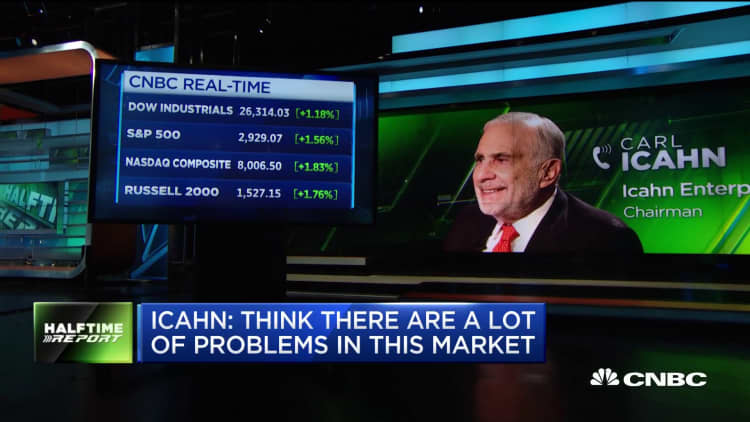
Longtime activist investor Carl Icahn is doubtful rate cuts can simply solve the problems facing the economy including the U.S.-China trade war.
"I don't think just lowering rates is the answer," Icahn said Thursday on CNBC's "Fast Money Halftime Report." "If it were that easy, you'd never have these cycles.
"There is an argument for cutting rates, but you look at Europe, I mean, they cut their cuts to negative, and look at the economy over there, so I don't think that's the final answer to the problem," the billionaire investor said.
The Federal Reserve cut interest rates for the first time in more than a decade last month, citing global developments and muted inflation. Fed Chairman Jerome Powell described the cut as a "midcycle adjustment," not the beginning of a lengthy cutting cycle.
The Icahn Enterprises chairman believes it's important to reach a trade resolution with China to sustain the record-long U.S. economic expansion.
"I think you really have to settle the China problem. ... The China problem is not just having repercussions for us, it has repercussions throughout the world," Icahn said. "I hope it'd settle. I really hope they'd make a deal and get that settled sooner than later."
The U.S. and China have been in a trade battle for two years. The tensions escalated this month after President Donald Trump ended the cease-fire by slapping additional tariffs on Chinese goods. China immediately retaliated by halting U.S. farm goods purchases as well as weaponizing its currency.


